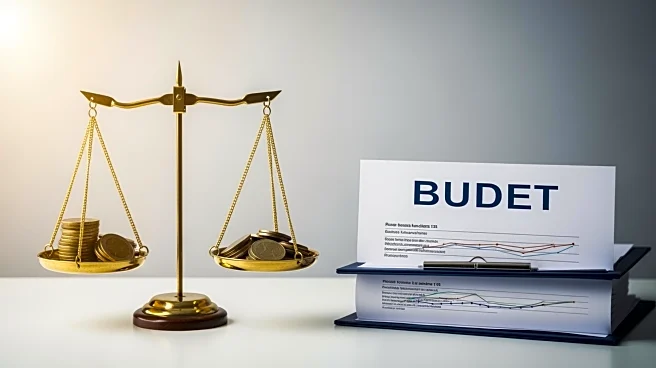What's Happening?
Poland's statistics office is set to release data on wages and industrial production for September. Analysts expect wages to have increased by 7.5% year-on-year, up from a 7.1% rise in August. Industrial production is forecasted to have grown by 5.0%
year-on-year, a significant increase from the previous month's 0.7% growth. Meanwhile, the Polish government is addressing concerns over a record budget deficit and debt, attributing these to increased defense spending. However, economists argue that high social transfers, which have been growing faster than the economy for a decade, are the primary cause of the fiscal imbalance.
Why It's Important?
The anticipated rise in wages and industrial production suggests a strengthening Polish economy, which could have positive implications for Eastern European markets. However, the record budget deficit and debt raise concerns about fiscal sustainability. The government's focus on defense spending reflects geopolitical tensions, but economists warn that unchecked social spending could undermine economic stability. These developments are crucial for investors and policymakers, as they navigate the balance between growth and fiscal responsibility.
What's Next?
The release of the official data will provide clarity on Poland's economic trajectory. Stakeholders, including investors and policymakers, will closely monitor these figures to assess the country's economic health. The government may face pressure to address the fiscal deficit, potentially leading to policy adjustments. Economists and political leaders will likely debate the merits of current spending priorities, influencing future budgetary decisions.
Beyond the Headlines
The ongoing debate over Poland's budget highlights broader issues of economic policy and governance. The tension between defense spending and social transfers reflects competing priorities in a complex geopolitical landscape. Long-term, these fiscal challenges could impact Poland's role in the European Union and its ability to influence regional economic policies.















